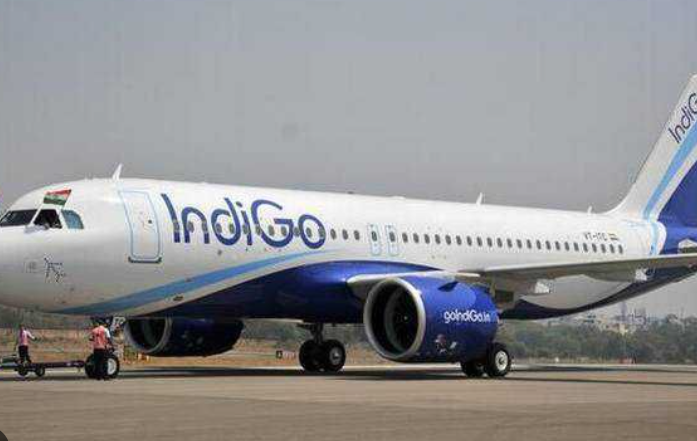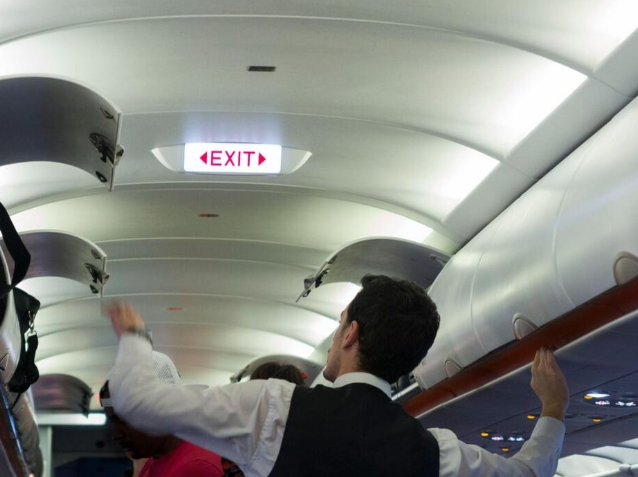
IndiGo Passenger Smokes ‘Beedi’ Onboard Delhi-Mumbai Flight, Triggers Consequences, Disruptive Incident
IndiGo Passenger Smokes ‘Beedi’ Onboard Delhi-Mumbai Flight, Faces Consequences
The Mumbai Police made an arrest on Tuesday following an incident aboard a Delhi to Mumbai IndiGo flight, where a 42-year-old passenger allegedly smoked a beedi (cigarette) onboard, as reported by news agency PTI. Upon discovery of the act, the IndiGo flight crew promptly intervened and detained the passenger. After landing at Mumbai airport, the individual was handed over to the authorities.

The unmistakable scent of the beedi prompted suspicion among the flight crew, prompting them to conduct a thorough search. Subsequently, it was confirmed that a passenger inside the aircraft’s restroom was indeed smoking. Upon interrogation, the accused confessed to the offense, resulting in the filing of charges under section 336 of the IPC and Aircraft Act. The individual is presently under judicial custody, as confirmed by the police.
This incident is not isolated , as similar instances have occurred in the past, demonstrating a recurring challenge for airline authorities.
In a comparable occurrence last August, a male passenger was found smoking inside the restroom of a Mumbai-bound IndiGo flight originating from Dubai. Following an investigation, a partially burnt cigarette was discovered in the lavatory, leading the crew to question the passenger regarding his actions. Subsequently, upon landing, the matter was reported to Mumbai’s Sahara police station, resulting in the registration of a case under Section 336 of the Indian Penal Code (IPC) and Section 25 of the Aircraft Rules.

Similarly, in March 2023, another passenger was apprehended at Bengaluru airport after being caught smoking aboard an IndiGo flight originating from Kolkata. The discovery of a cigarette in the dustbin of IndiGo by the cabin crew prompted her arrest and the subsequent registration of a case for endangering the lives and safety of fellow passengers.
These incidents highlight the gravity of smoking onboard flights, not only endangering the safety of passengers and crew but also violating aviation regulations and local laws. Smoking onboard flights poses a significant risk, including the potential for fire hazards and compromising the air quality within the aircraft.
Airline authorities and law enforcement agencies must remain vigilant in enforcing strict measures to deter such unlawful behavior and ensure the safety and well-being of all passengers and crew. Enhanced awareness campaigns and stringent penalties can serve as deterrents against such reckless acts, fostering a safer and more secure air travel environment for everyone involved.
As the aviation industry continues to evolve, addressing challenges related to passenger misconduct remains a critical priority, necessitating collaborative efforts between airlines, regulatory bodies, and law enforcement agencies to uphold safety standards and uphold the integrity of air travel.
The recurrence of incidents involving smoking onboard flights underscores the importance of heightened vigilance and stringent enforcement measures to prevent such violations of aviation regulations. Smoking onboard not only jeopardizes the safety of passengers and crew but also compromises the integrity of air travel protocols.
As airlines strive to maintain a safe and secure environment for all passengers, it is imperative to emphasize the severe consequences of smoking onboard flights. Not only does it pose a significant fire hazard, but it also undermines the quality of air within the aircraft, potentially endangering the health and well-being of everyone onboard.
Efforts to curb such misconduct must extend beyond mere enforcement actions to include comprehensive awareness campaigns aimed at educating passengers about the risks and implications of smoking onboard. Clear communication of rules and regulations, coupled with strict penalties for non-compliance, can serve as effective deterrents against such reckless behavior.
Moreover, the collaboration between airlines, regulatory authorities, and law enforcement agencies is essential in addressing the root causes of these incidents and implementing proactive measures to prevent their recurrence. This involves continuous monitoring of passenger behavior, implementing enhanced security protocols, and fostering a culture of accountability among all stakeholders.
For the latest updates-click here.

